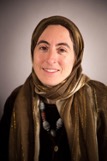 Christina Tobias-Nahi is the Director of Communications and Public Affairs for Islamic Relief USA.
Christina Tobias-Nahi is the Director of Communications and Public Affairs for Islamic Relief USA.
Islamic Relief USA, as a member of the Islamic Relief federated family, adheres to the seven Fundamental Principles of the International Red Cross/Crescent Movement, which provides an ethical, operational, and institutional framework to humanitarian organizations working globally. The key principles of humanity, neutrality, and impartiality are core to helping people in need during armed conflict, natural disasters, and other emergencies without naming the actors who might be responsible for the suffering caused. Also, as dignity is part of our mission, working with any and all affected populations regardless of creed is paramount.
The major priorities for Islamic Relief as a global family are hunger and food insecurity, climate change, refugees, internally displaced persons, and most recently gender justice and women’s empowerment, including the rights bestowed on women in Islam that are not always culturally practiced, often keeping them marginalized. During the past couple of years, our health work has also been raised in profile with vulnerable populations that are disproportionately impacted by the impacts of COVID-19, which include disruptions to education and loss of livelihoods especially impacting women and mothers.
In all instances, the opportunity to rewrite a constitution is truly a huge responsibility. However, what is truly amazing in Chile’s moment now is that half of the delegates elected to this task are women. That means this is a truly historic and unprecedented period in which Chile’s constitution will be drafted half by men, half by women. That, and the fact that many marginalized communities will be included in the process: indigenous communities, communities of faith, and others who are not often heard and whose rights may have been trampled historically. For these reasons, Islamic Relief USA was really privileged to take part remotely in the recent hybrid conference on Human Dignity and Religious Liberty.
Guillermo Larrain, economist and author of The Stability of the Social Contract in Chile, tamped down expectations in an interview given to Al Jazeera in July of this year, stating that people should not expect miracles. A new constitution will change structures but not necessarily behavior. In the short term at least, he says, it is difficult to think that Chile will turn into a paradise of equality and inclusivity.
That sobering assessment reminds us that it often falls on faith communities to work on behavioral change. They are well trusted by the communities they serve. Additionally, they often fill the role of protection in areas where the nation state so often fails. In the United States, Islamic Relief USA recently helped commission a study on the contributions of the Muslim community to social justice causes, which showed that Muslims are disproportionately generous in their money (charitable giving) and time (volunteerism) relative to the size of their small numbers. We invite you to explore more fully the report illustrating the importance of the faith sector in civil society in the links provided below [1].
At Islamic Relief, we do not yet have as much presence as we would like in South America, and we have no projects at present in the Southern Cone countries. We have worked a great deal though with Catholic Relief Services (CRS)/Caritas Internationalis in responding to formidable disasters in the Caribbean and Latin America. A few examples are the earthquake in Ecuador and floods in Peru. In addition, we are working currently with many groups responding to the Venezuelan refugee crisis in a number of different countries and with different faith partners—mostly CRS and Hebrew Immigrant Aid Society (HIAS)—and also on some essential COVID response projects. The project with HIAS specifically is to support Venezuelan women who encountered violence on their journeys and now find themselves in Ecuador; it works to integrate them into their new communities, as having a social support network and a feeling of belonging is so important to mental health in overcoming trauma. HIAS has also worked with Islamic Relief in Greece in addressing the refugee crisis there. These close partnerships are contrary to the narrative that Muslims and Jews cannot work together on important issues. With other faith partners like Episcopal Relief & Development in Liberia, the whole premise of our work there on the ground is working with faith leaders and communities, including men and boys, on behavior change related to domestic violence and gender-based violence.
In conclusion, this important event in which we were honored to participate only reaffirmed the religious freedom tenets highlighted by the organizers and the importance of the space for individuals of faith, faith communities, and faith organizations to have the room to practice, worship, and operate—to provide services and spiritual care to those hurting in so many places across the globe and to help shape behavior change where harmful practices need to be eliminated. As Chile goes forth in their process of constitutional reform, it is a hope that the drafters are able to keep in the back of their minds the giant opportunity they are being handed and the great responsibility as well—and the knowledge that the whole world is watching.
[1] See Dan Parks, Muslim Americans Are More Generous than the Overall U.S. Population, Chron. of Philanthropy (1 Nov. 2021), https://www.philanthropy.com/article/muslim-americans-are-more-generous-than-the-overall-u-s-population; Ind. Univ.–Purdue Univ. Muslim Philanthropy Initiative, Muslim American Giving 2021 (2021), https://scholarworks.iupui.edu/bitstream/handle/1805/26703/Muslim-American-Giving-2021_Final.pdf.
